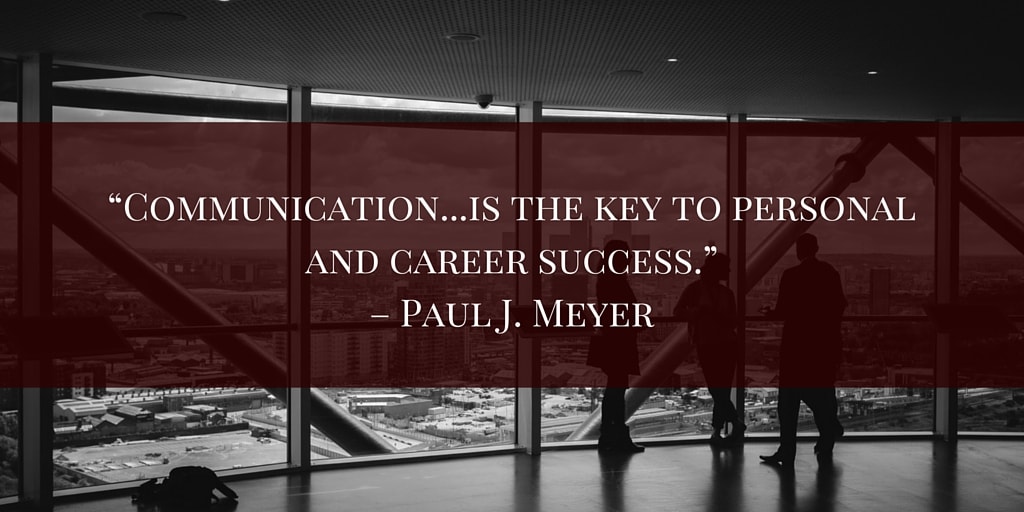Success is a tricky, subjective thing. Professional success even more so.
Depending on whom you ask, the answer to what success is varies wildly. To some, it may mean making a lot of money or being financially stable. To others, simply being their own boss is enough. And to the truly innovative or ambitious, there’s disrupting an entire industry or building the next Facebook or Google.
Even Merriam-Webster’s definition of success is open for interpretation:
Success is a “favorable or desired outcome.”
Naturally, we all have different desires, which means I could label one outcome a success and find that no one else in the world agrees with me. (Then perhaps I should reevaluate my perspective?)
The point is whomever you ask, however you define it, success is not a one-size-fits-all achievement.
However—and there’s always a “however,” “but,” or otherwise exception to the rule—how you reach success is decidedly less subjective. There is a path that each us follows to success, and that path can be hard for a number of reasons. But, there are several things we can improve on to make that path much easier, regardless of what it looks like for us personally.
So, what are the three most important things that affect your success in the professional world and why should you improve them? Here’s a hint: They’re all within your control and, coincidentally, all begin with the letter “C.”
Clarity
Clarity in this context means understanding, and being clear on, what success means to you and for you. In other words, what is your definition of success?
Defining your success is how you improve your clarity, and doing so will provide purpose and guide your decisions and actions toward that definition over time, whether consciously or subconsciously.
This is a big step in itself, and it may seem like a huge undertaking, making you feel overwhelmed. Don’t be. As challenging or demanding as your personal definition of success may be, it can be made simpler and more manageable by simply setting achievable goals.

These goals may be longer in nature, say 3–5 years, or shorter, such as one year or less. Your definition of success will determine how many goals you should set and their timeframe. Just remember that your success and the goals you make can and should change as you progress on your path.
What’s important is for you to seek clarity on what it is you want from your professional life now and in the future. This provides a homing beacon of sorts to keep you on track and help in your decision making and tracking your progress to success.
Communication
As a personal advocate for improving business communication, I’d be biased in noting I find this to be the most important aspect of the three. Communication could definitely be described as the glue that holds everything together, as well as the key that opens countless doors.

Even the most highly knowledgeable and trained individuals, whatever their craft, can be held back by lacking good communication skills. Some fail to realize this fact and, worse still, others refuse to acknowledge it.
People ultimately bring ideas to life, but that doesn’t happen without communication. Communication bridges idea to concept to prototype to product; it is the execution element that helps you reach success—your desired outcome.
Where clarity provides purpose, communication provides the practical, day-to-day means for interacting and progressing along your path to success.
Improving your business communication skills results in numerous advantages: Fewer misunderstandings, saved time, better quality interactions, and stronger professional connections, among others.
Each advantage helps you along your path to success in its own way.
Confidence
While the last of the three, confidence is certainly not the least important. In fact, confidence is particularly important because it supports clarity and communication.
After all, what good is defining your success if you sabotage its path by not believing you’re capable of reaching it?
This sabotage comes in many forms, but mostly in how and what you think about yourself and others. And I’ve heard it all:
“I don’t know where to start.”
“He knows more than me.”
“She’s been doing this much longer than I have.”
“I’m just not an expert yet.”
Whether it’s someone else or yourself as the subject, these are just excuses. Stop making them and seek out ways to ensure you remain confident. Better yet, do everything in your power to be more confident.
Want to improve your confidence level? Say no. Ask for what you deserve. Learn. Believe in yourself and your capabilities.
Saying no is a particularly essential part of building confidence. Many times simply saying yes derails you on your path to success because you wind up working on someone else’s success instead of your own. This could mean doing one too many favors for a coworker, limiting hours for your own work and projects, or delaying your business plans.
There is power in no: It’s self-empowering and used regularly by the mentally tough.
Easier said than done? Of course it is, but nothing in life was made to be easy. The best wins are always hard; the challenge is what makes you. Easy wins don’t build you up, make you think critically, or develop your character; they don’t make you go that extra distance to be better and do better.

Sometimes failure comes before the win, and that’s fine too. Confidence is what forces you to pick yourself up after that loss to try again until you win. Sometimes it’s winning that promotion. Or it’s winning a new client. And sometimes it’s just making it to next week. (I know that’s a win I often have to remember to appreciate.)
Each win (or loss) you experience should further strengthen your confidence and keep you on your success path.
Connecting the Pieces
Despite my personal bias towards communication, all three aspects I described play an important role in succeeding professionally. Ignoring even one these personal factors holds you back and caps your potential, without a doubt.
Think of it like this:
Clarity is the destination, communication the vehicle, and confidence the fuel.
With no destination, you have nowhere to go. Without a vehicle, you can’t reach the destination or it takes much longer to get there. And no fuel = no progression. That’s why they are equally important and, together, they will take you further than any piece of knowledge or skill.
So, seek clarity and define your success. Be a better communicator. And gain confidence in your capabilities. Start improving these aspects today to succeed professionally.
Which aspect do you think is most important to succeed professionally? Share in the comments section below.
This post was originally published on my LinkedIn profile on December 13, 2015, and was featured on LinkedIn Pulse in the Best Advice channel.

